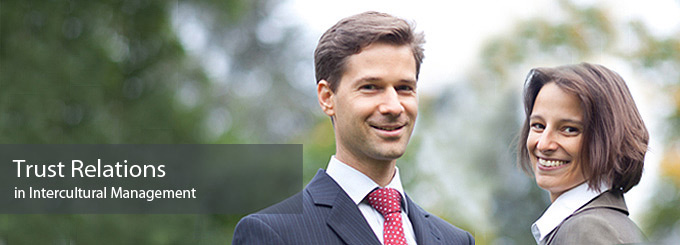JHRM briefing
Our approach.
We create competence. Using innovative methodologies. For successful intercultural collaboration. Consulting, training, and coaching since 2005. read more…
Our credits.
The combination of academic expert knowledge and solid teaching skills creates real value-added in intercultural training. read more…
JHRM news
Chapter on TRIM project methodology in Handbook of Research Methods on Trust


The TRIM study (Trust Relations in Intercultural Management) explains cultural threats to the creation of interpersonal trust
When collaborating with colleagues or partners from other cultures, our well-proven capacity to develop trusting relationships needs to be put to the test. Particularly at the beginning of business relationship, culturally diverse expectations or customs can hinder the development of trust.
Assessing the trustworthiness of other people

Trust across cultural boundaries
How to assess whether one can trust a colleague or business partner? And how to make the other one see that he or she can actually trust oneself?
It is not easy to say what, after all, the relevant factors are that we pay attention to when we assess the trustworthiness of colleagues or business partners. We do this by help of a so-called ‘implicit capacity’: We just know how to do it! But in the interaction with colleagues or business partners from a different culture, this capacity might lead us astray: culturally diverse expectations or customs can hinder the development of trust.
Through 100 interviews with managers from notable European companies from various industry and services sectors, the TRIM study examined how and when colleagues or business partners stumble into threatening cultural ‘misunderstandings of trust’.






